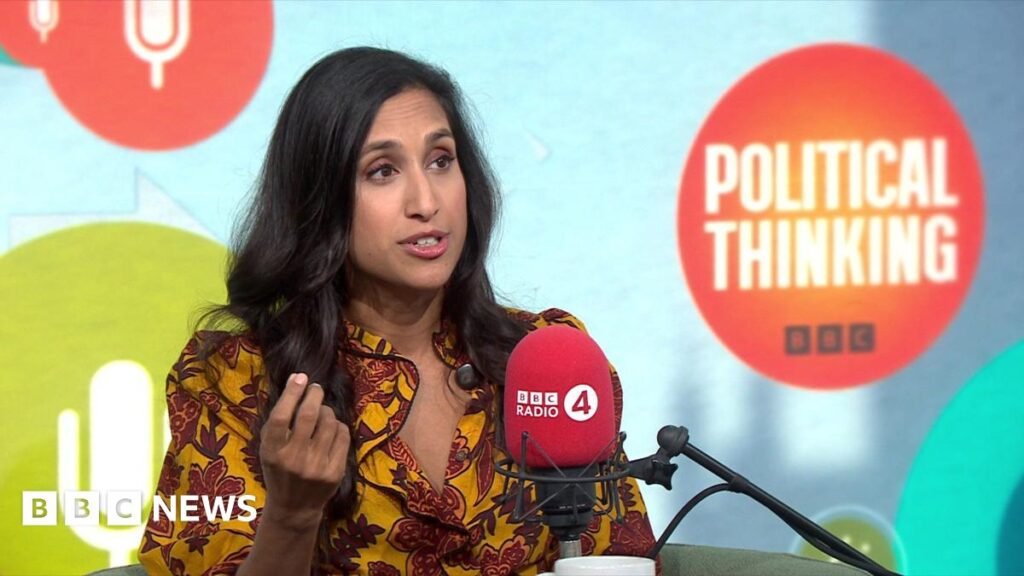Coutinho spoke to the BBC’s Political Thinking podcast after announcing her party’s plan to reduce energy bills at its conference earlier this month.
The Conservatives said they would repeal the Climate Change Act 2008, ditch carbon taxes on electricity generation and cut a funding scheme for renewables.
When asked if she accepted emissions would go up under this plan, Coutinho said: “So emissions would go up domestically but I would argue not necessarily globally.
“And this is the problem that we’ve got. The Climate Change Act is specifically focused on domestic emissions.”
The UK’s legally binding targets are set on the basis of emissions within the country’s territorial borders.
That means emissions associated with imports to the UK, such as gas, steel or cement from abroad, are not taken into account.
Coutinho said: “So if you don’t have AI in Britain, that’s great for the Climate Change Act. But it doesn’t make a bit of difference to global emissions.”
The shadow energy secretary said the question of whether her party’s plan “would be a better or worse decarbonisation path I think is actually up for grabs”.
The Conservatives have not stated how they intend to lower emissions globally or how they would measure greenhouse gases released beyond the UK’s borders.
This week, the World Meteorological Organization confirmed that 2024 had seen a record rise of carbon dioxide (CO2) in the atmosphere.
In its latest progress report, external, the Climate Change Committee (CCC) said “emissions in the UK have been steadily decreasing, with levels in 2024 50.4% below those in 1990”.
The CCC, which is the UK’s government climate adviser, said data from 2022 showed imported emissions were at their highest level since 2007.
But the committee added: “The reduction in territorial emissions since 1990 significantly outweighs the increase in emissions from imports over that period, reflecting the fact that emissions reductions in the UK have largely occurred without offshoring emissions.”

